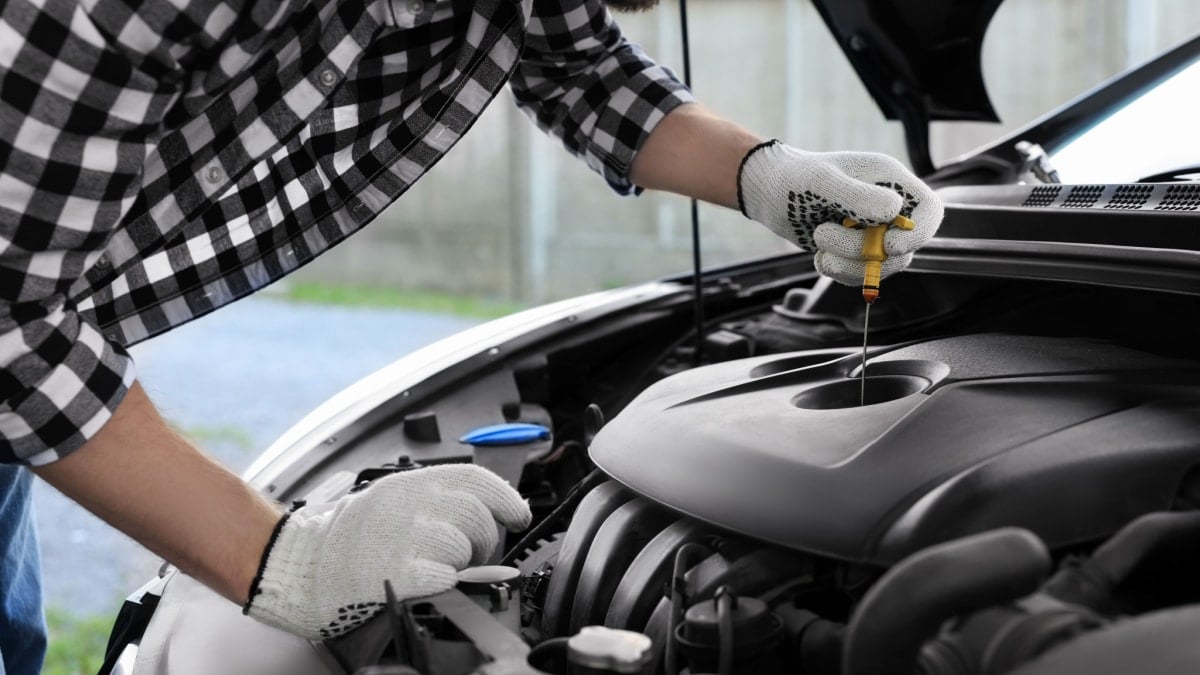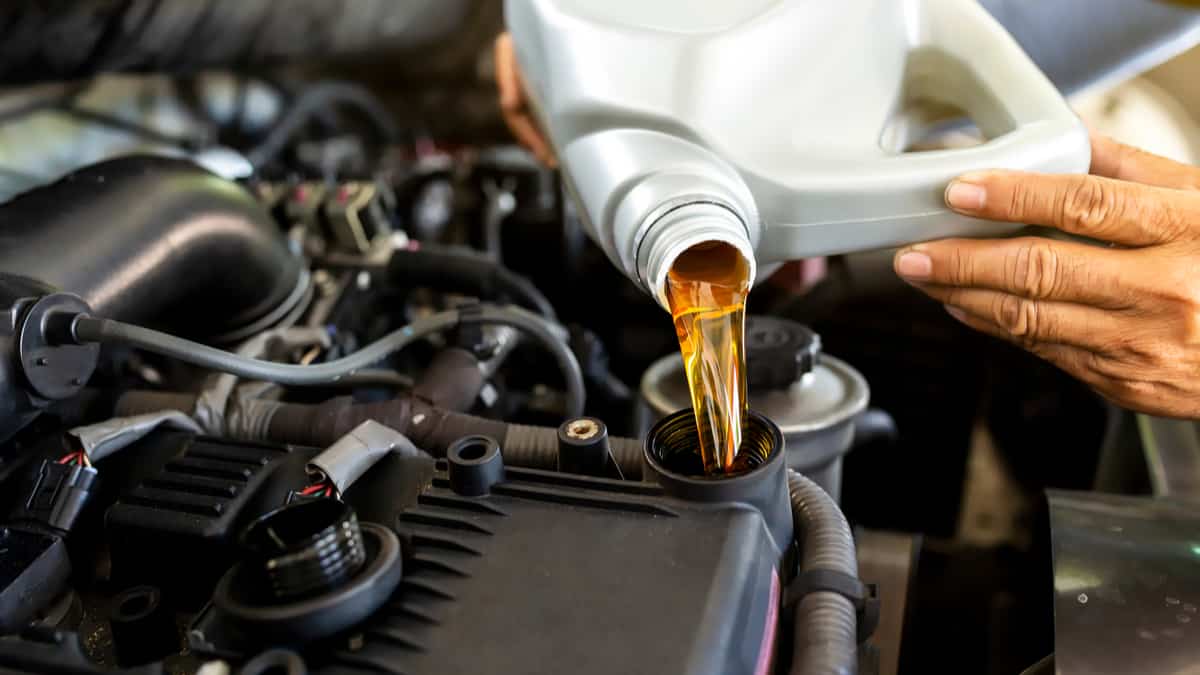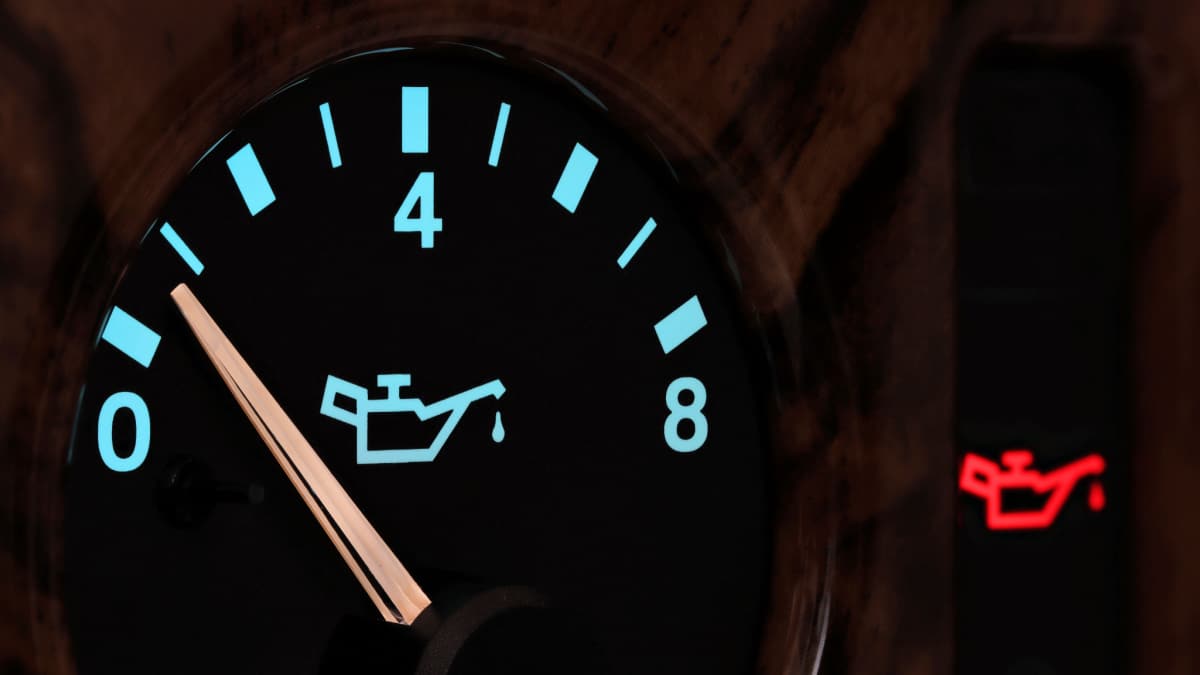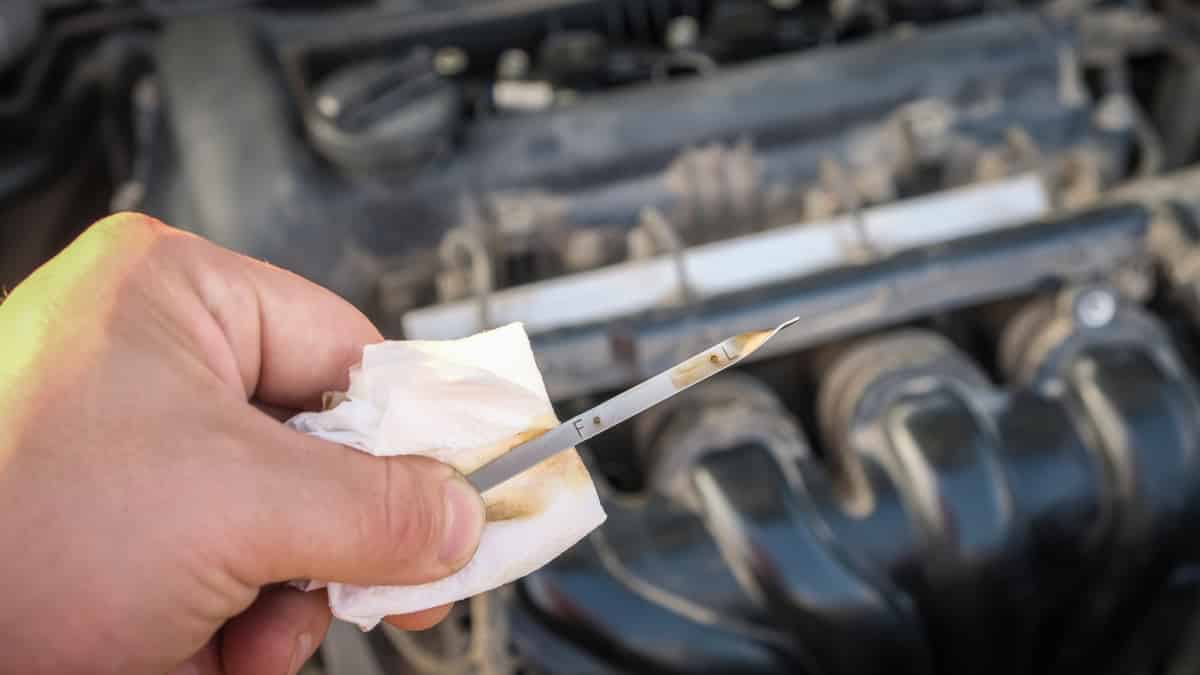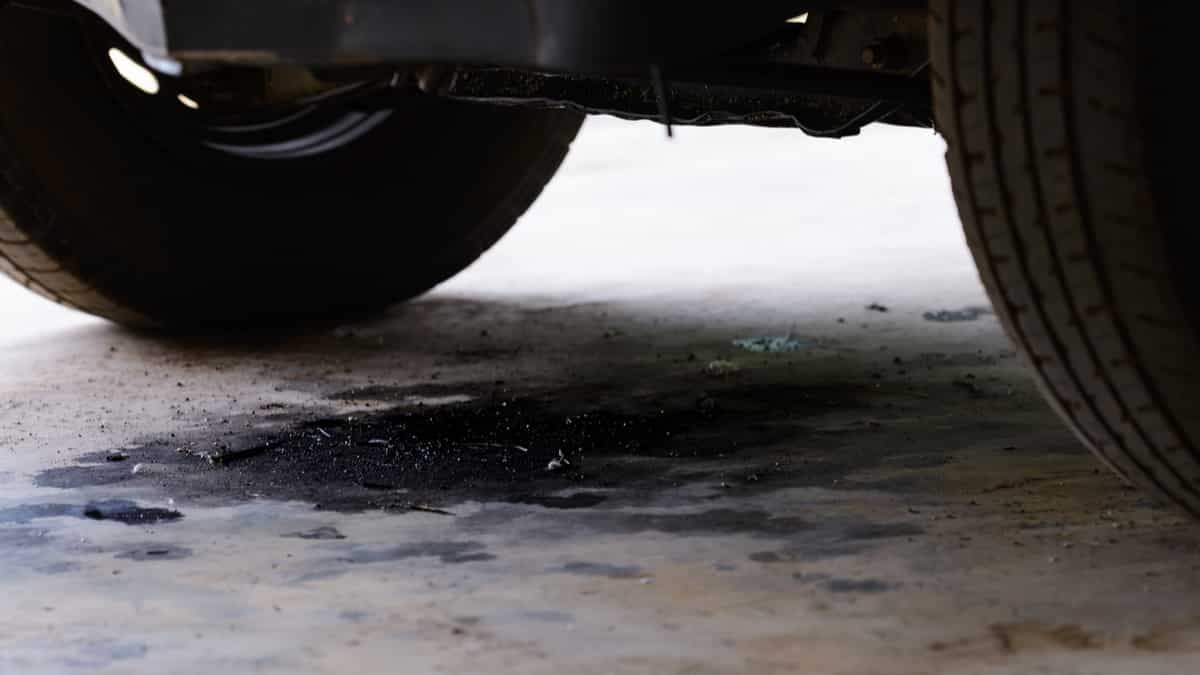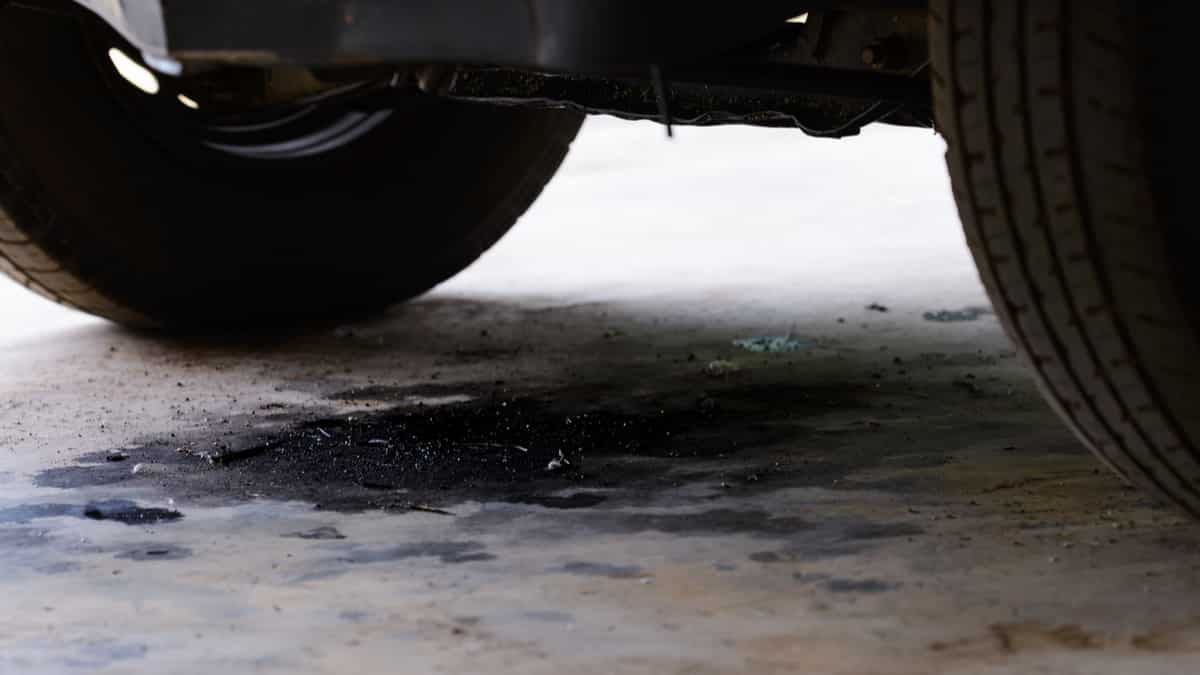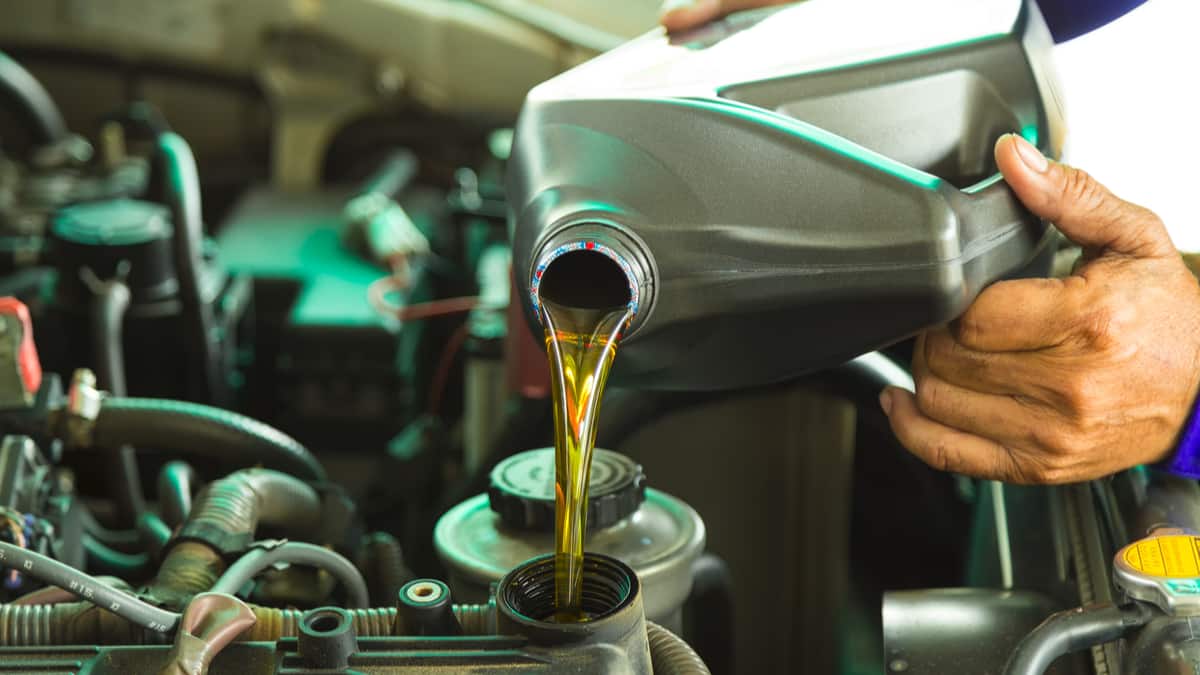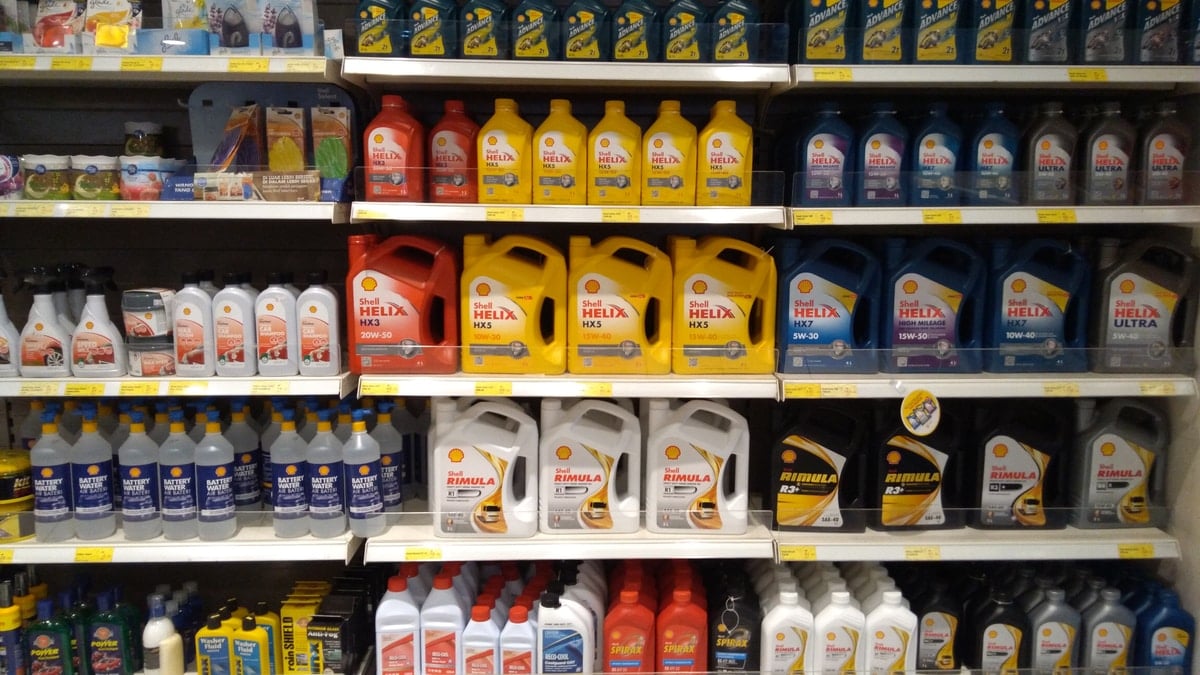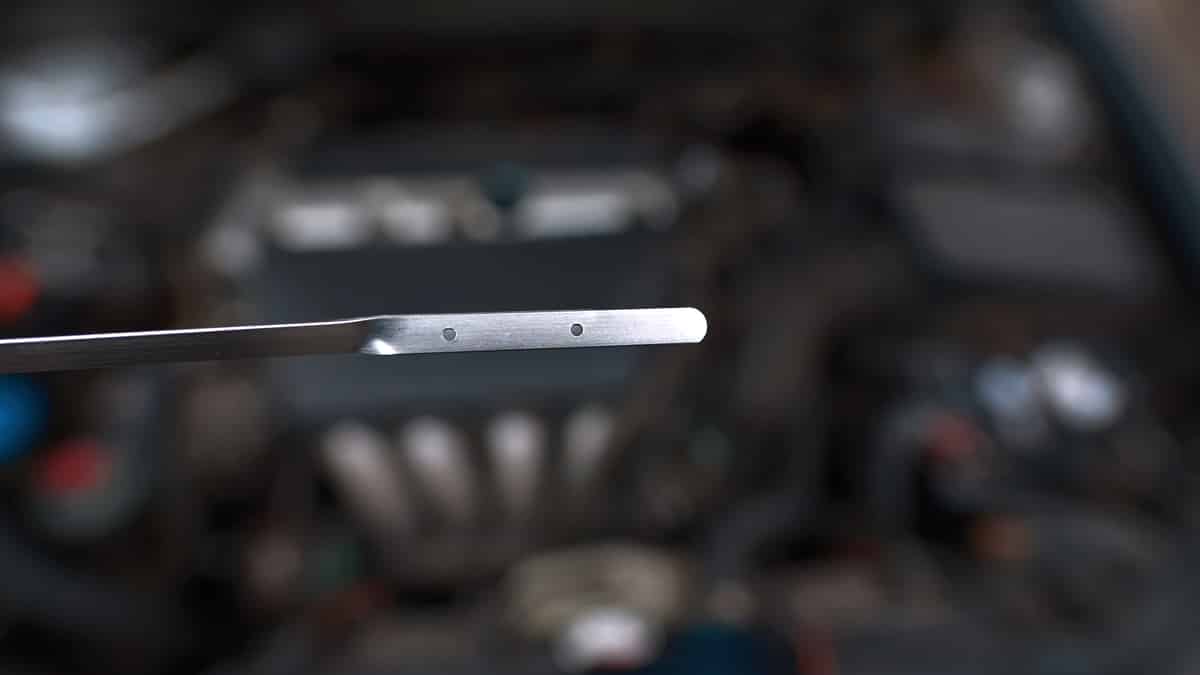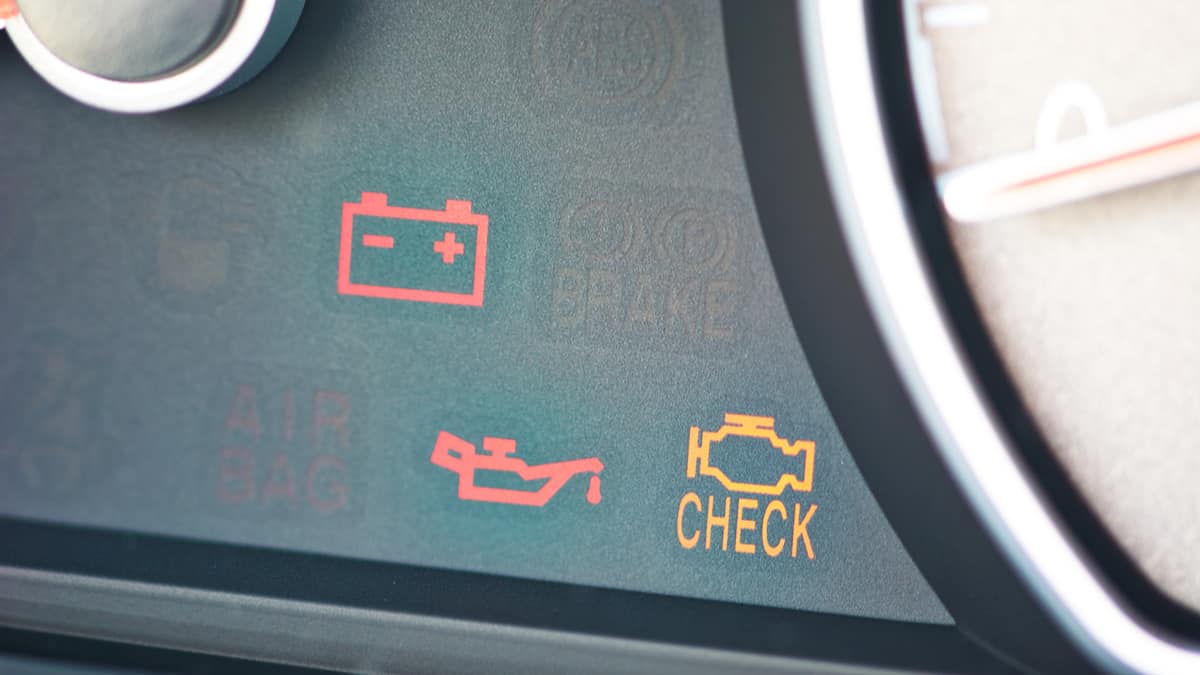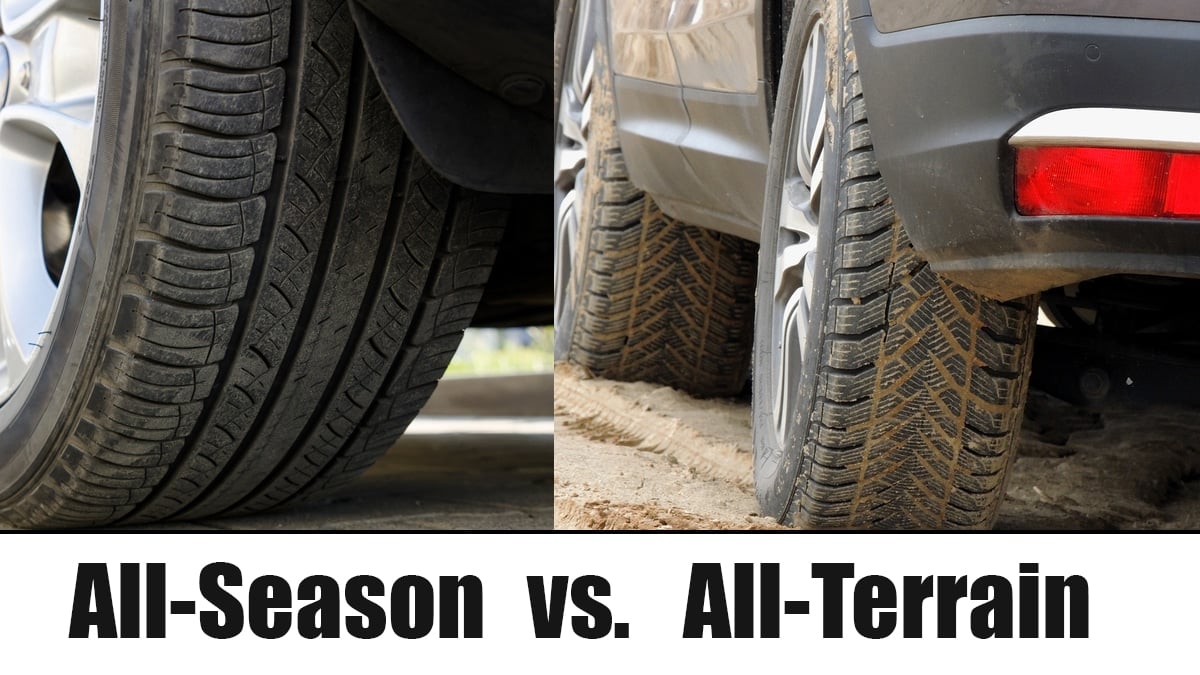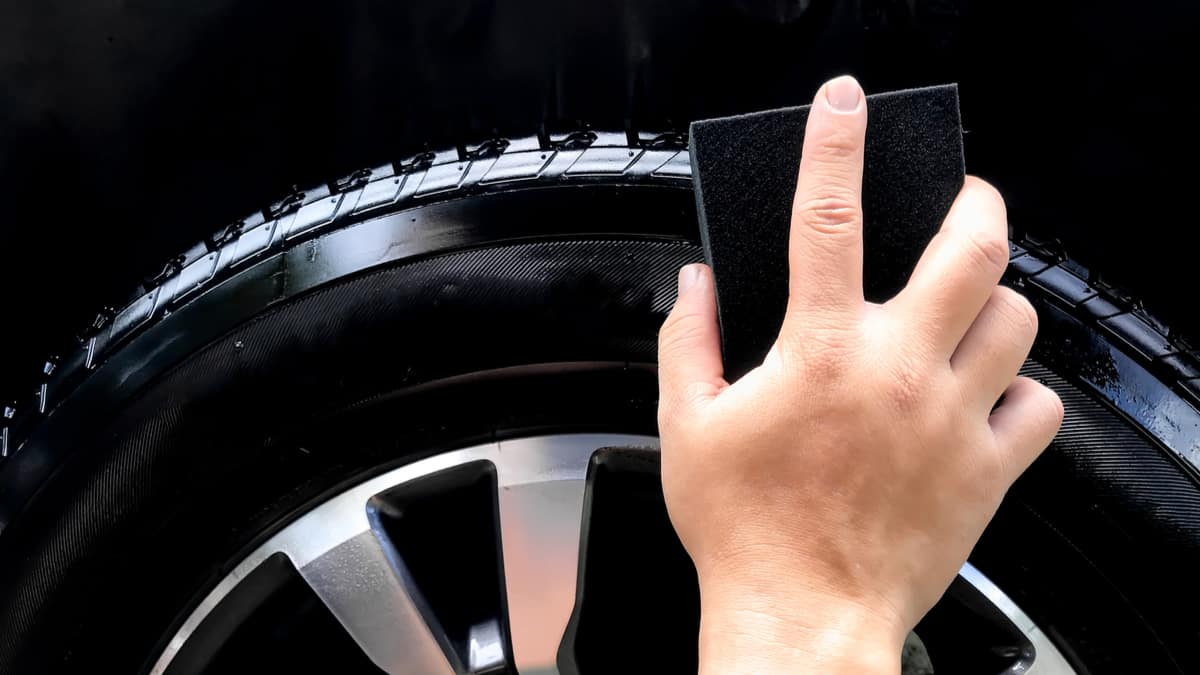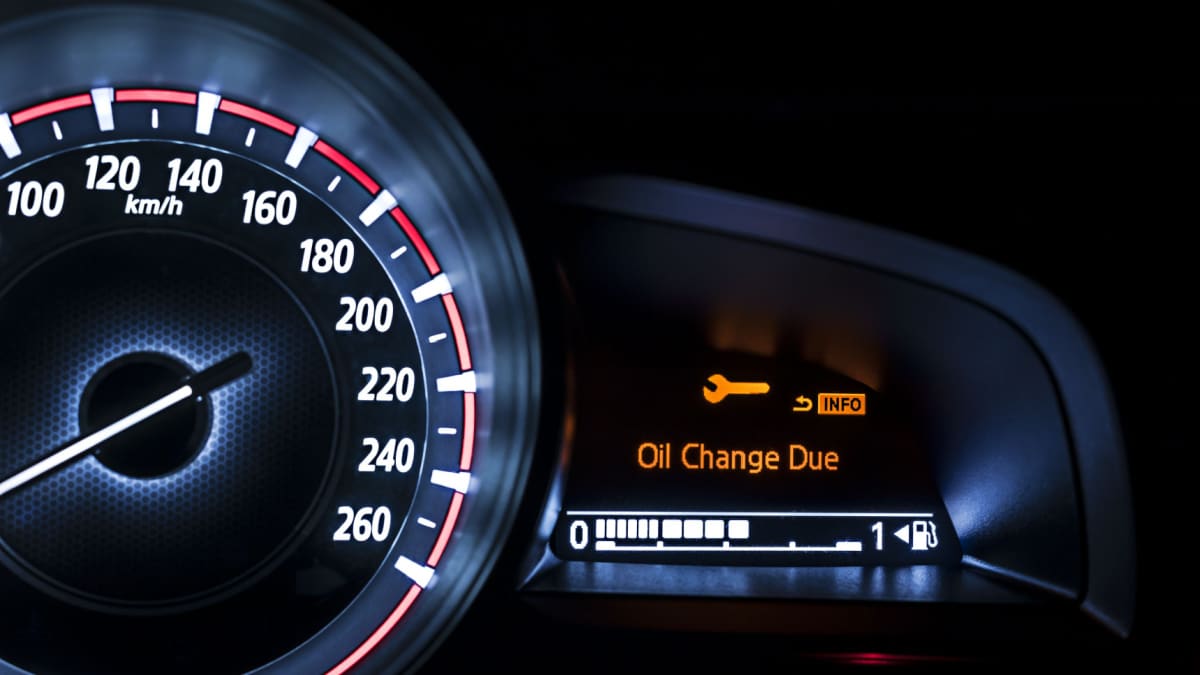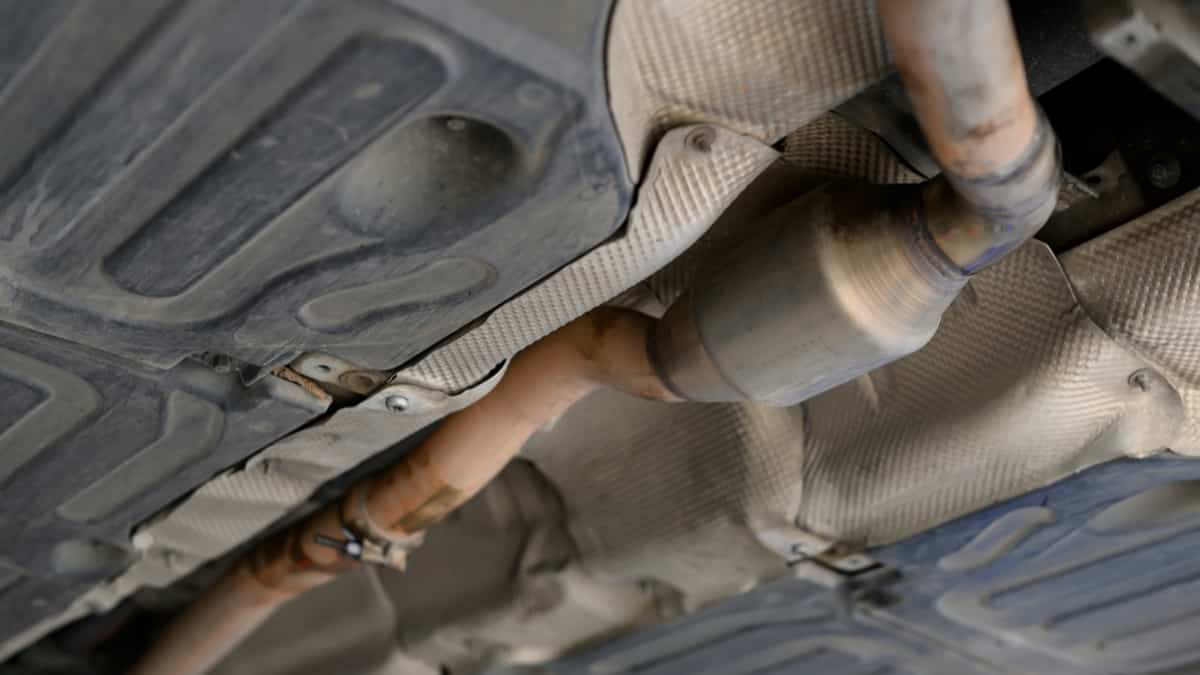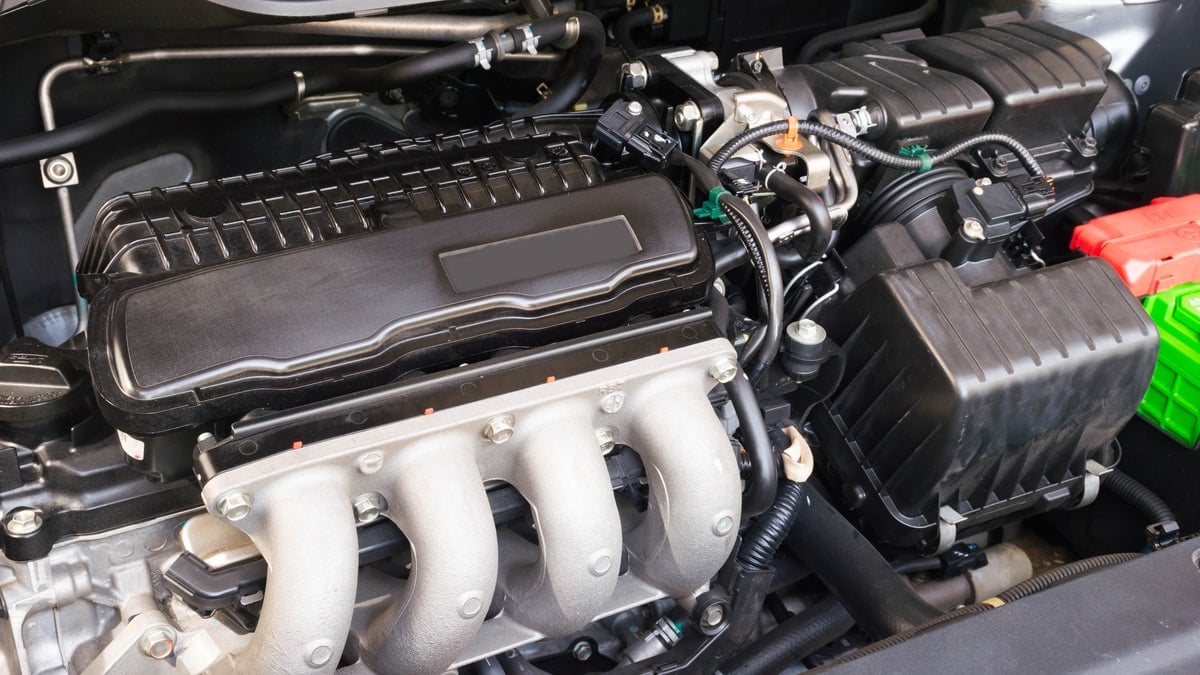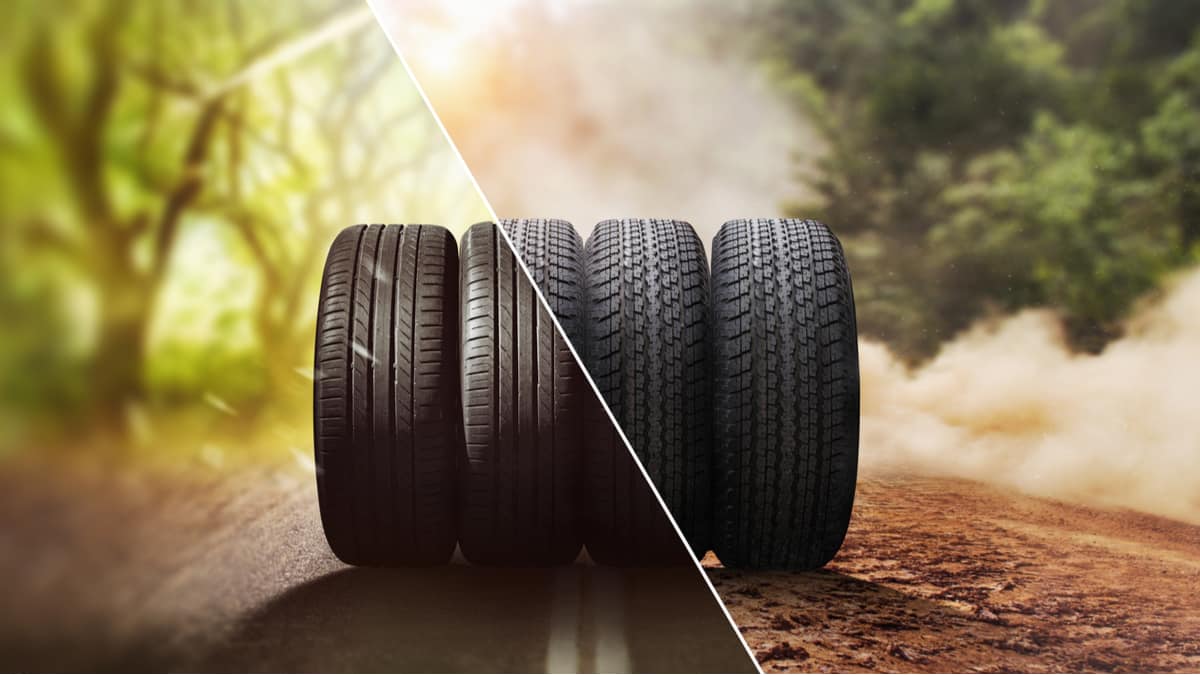Motor oil is required in the engine to ensure proper lubrication. If there’s a problem with the mechanics, oil could spray on the motor, leaving the levels lower than they should be. But, what would cause oil to spray all over the engine, and what can be done about it?
As certified mechanics, we see this problem more frequently than you would think. That’s why we are able to answer your questions and steer you in the right direction. We also take some time at the end of the article to resolve a few issues you’ve been pondering.
Reasons For Oil Spraying All Over The Engine
It’s never normal to have oil sprayed on the engine, but some issues are easy to resolve. It’s possible that the oil dipstick isn’t seated or the oil cap is loose. You may also have a leaking oil filter, leaking gasket, overfilled engine oil or high crankcase ventilation pressure.
A quick look at these possibilities helps you determine what’s wrong.
1. Oil Dipstick Is Not Seated Properly
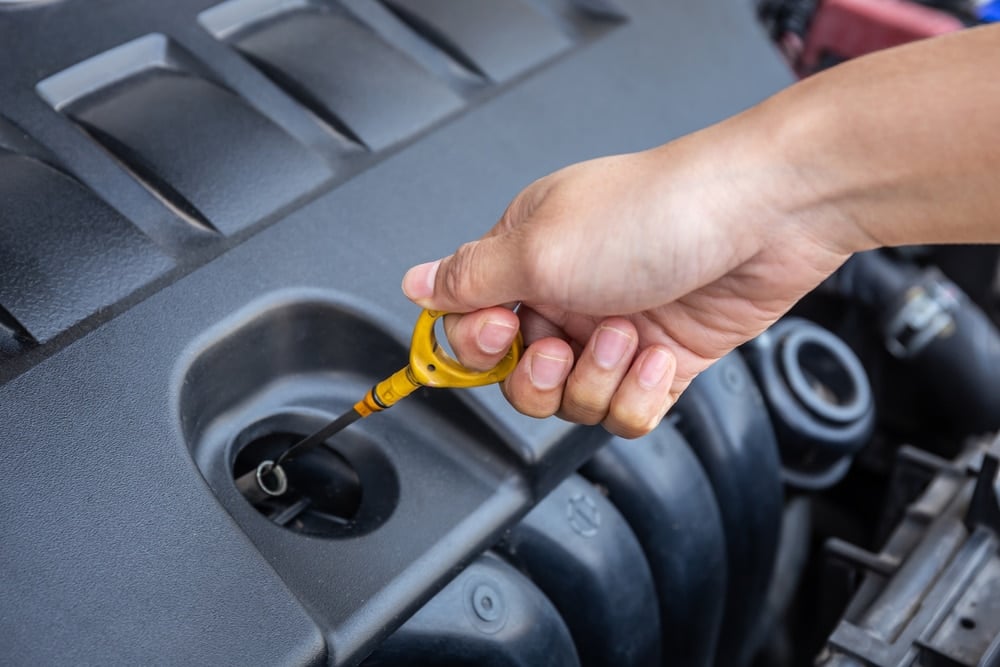
The oil dipstick helps you determine how much fluid is in the engine. It’s the part you pull out to see if the engine needs more oil. If the dipstick doesn’t go in all the way, it can lead to a lot of trouble. When pressure builds up in the engine, oil can leak, and the levels can drop too low.
If the dipstick doesn’t go in, you may have the wrong one for your vehicle. These parts are not universal. Otherwise, it’s possible that the tube has become damaged or there’s an obstruction blocking the way.
2. Oil Cap Loose
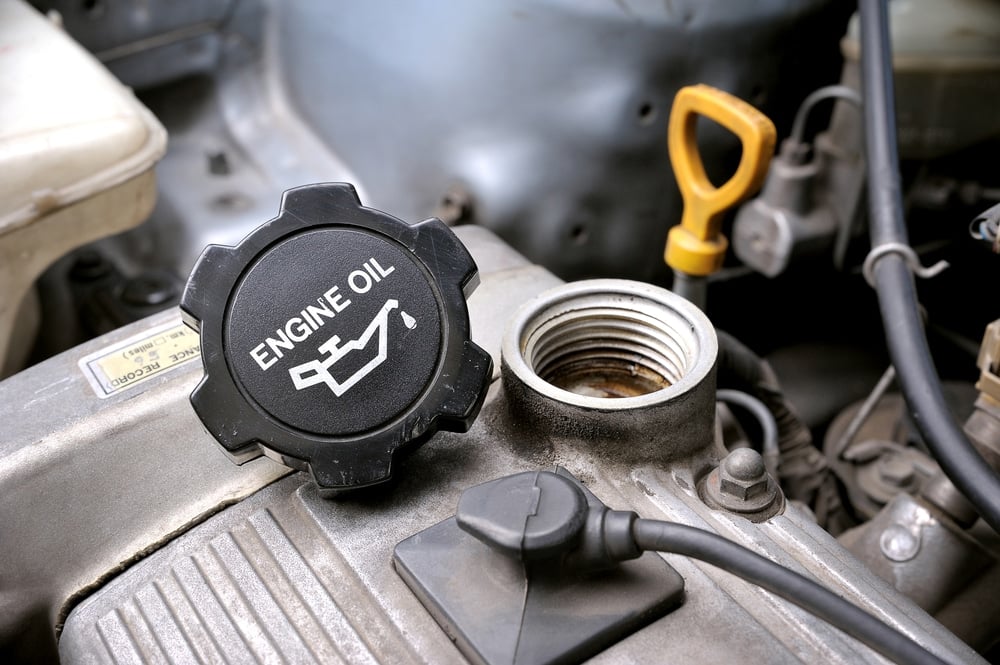
The oil cap is also important. It’s meant to keep contaminants and dirt from getting into the engine. If the oil cap is missing or loose, the fluid could start to spray up on the engine. Additionally, dirt can now get into the engine and cause major damage.
At the first sign of damage to the oil cap, it’s best to get a replacement. Because the oil cap is inexpensive to replace, you shouldn’t procrastinate. Just like the oil dipstick, the cap is also not universal. You must make sure the replacement you purchase fits your vehicle.
3. Leaking Oil Filter
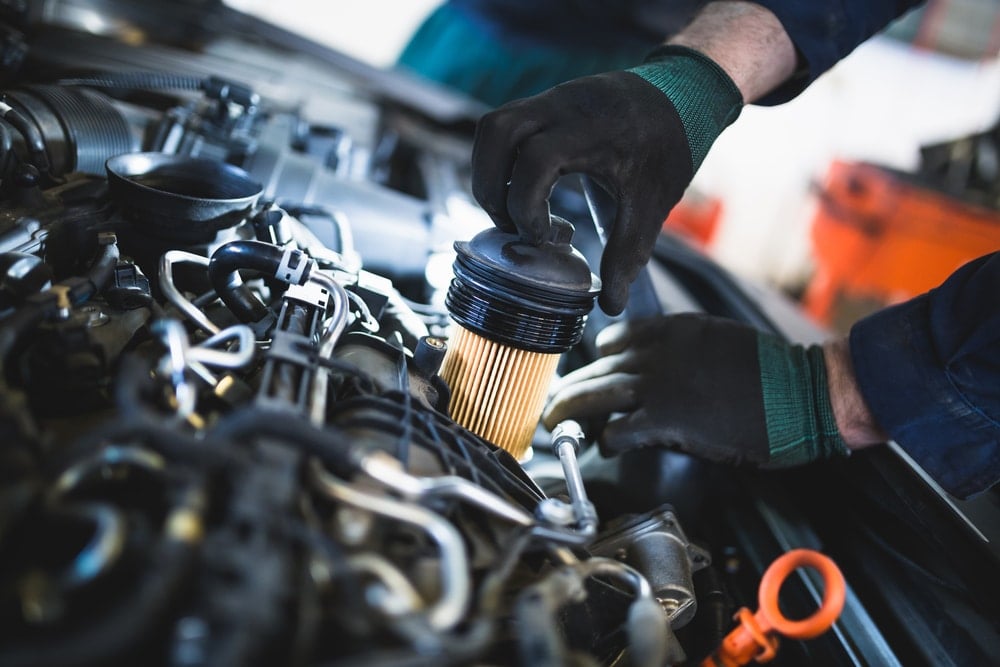
If you’ve just had an oil change and notice fluid all over the engine, the problem could be the filter. The filter should be replaced with every oil change, as per most manufacturers’ recommendations. However, the filter may not have been installed properly, leading to a big mess.
Drivers experience this problem when visiting a lube location that’s not experienced. For this reason alone, it’s wise not to go anywhere based on price alone, or you may end up with larger issues.
The only solution to this problem is to replace the oil filter again. You would also need to install a new rubber gasket.
4. Leaking Gasket

If you notice oil leaking out onto the engine, you need to inspect the motor and all of its gaskets. Your engine has several gaskets that keep the oil within the motor. If parts have been over-torqued, the gasket could become deformed and leak. It’s also possible that the gasket wasn’t installed right to begin with.
The main ones that leak onto the engine include the valve cover gasket, the head gasket or the intake manifold. When the head gasket blows, boiling hot oil spews out from between the engine and the cylinder head.
5. Overfilled Engine Oil
There’s a specific amount of oil every engine needs. Determining the motor oil capacity is essential to regulating the fluid level. When you perform an oil change, you want to slowly fill the engine back up. Check the levels often and stop before it goes over the MAX line.
If you put too much oil in the engine the crankcase pressure will rise and the motor could push out hot liquid. This spray would end up on the engine, thereby voiding the warranty. If the engine runs low, it can also lead to damage.
RELATED: What Happens When You Put Too Much Oil in Your Car?
6. High Crankcase Ventilation Pressure
The positive crankcase ventilation (PCV) valve regulates the pressure in the crankcase. When this part fails, the pressure can become too high, leading to oil blowing out of the dipstick.
The high pressure can also be caused by incorrect oil levels or engine blow-by. Either way, permanent damage will occur, so you don’t want to mess around.
RELATED: 7 Symptoms Of A Bad PCV Valve
How To Fix An Engine Spraying Oil Everywhere
At the first sign of a leaking engine, you want to take quick action. For the best results, follow the same steps we would as a professional mechanic.
1. Clean The Engine
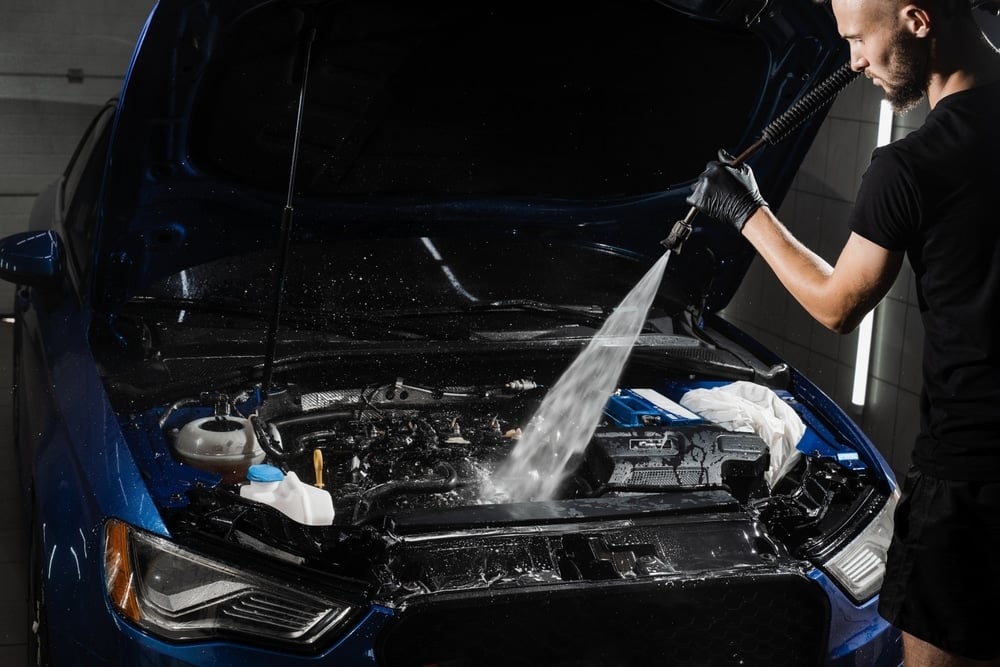
Before you can go any further, you must first clean the oil off of the engine. Here are steps to clean the engine bay.
- Work with a cool engine. Do not clean a hot engine.
- Remove any dry debris or dirt that can be cleaned with a brush.
- Unhook the battery and protect any electronics with plastic.
- Protect the alternator with a plastic bag
- Apply a degreaser and scrub it with your detailing brush.
- Rinse it off gently with a pressure washer.
- Wipe the engine down with a microfiber cloth.
- Reattach the battery.
If there’s burnt-on oil that’s difficult to remove, you can use some WD-40. A small brush helps you get into tight spaces.
You can also get a professional to clean the engine if you don’t have time for the detail job. Many local car washes and professional detailers offer services for the engine.
2. Start The Engine
Once you’ve cleaned it all up, you won’t want to mess it back up. We completely understand, but this step is vital to fixing the problem.
Start the engine up and wait a few minutes. Let the engine run or take it for a quick spin until the oil starts to leak. If you decide to take the car for a drive, the oil may blow more than expected, making it more difficult to figure out where it’s coming from.
3. Look For Any Signs Of Leaks
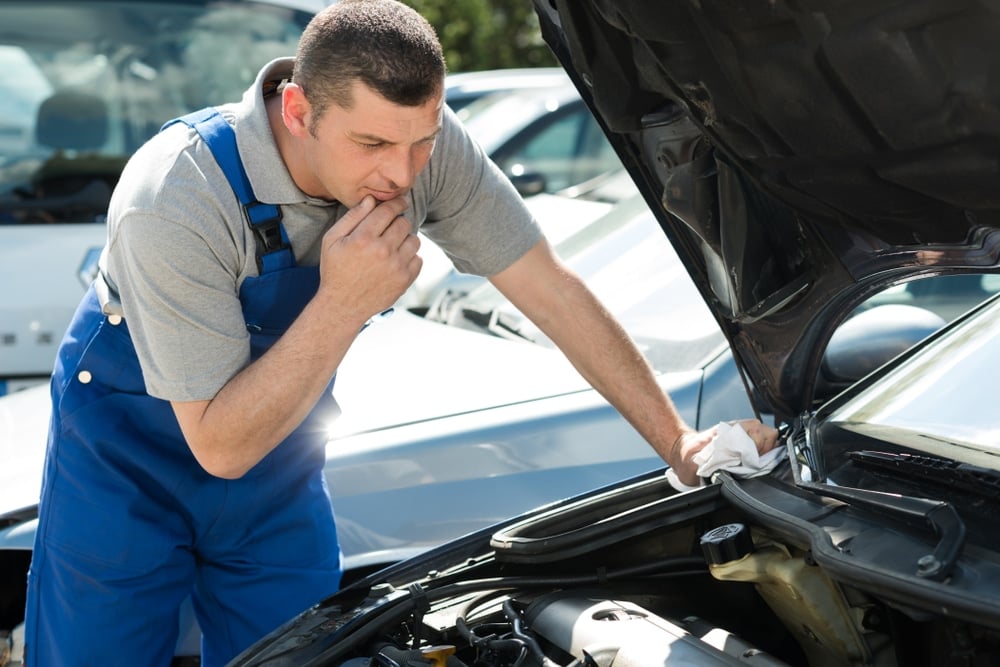
Now, it’s time to inspect the engine. Because the surface is clean, it should be easy to spot where the oil is coming from now.
If you are unfamiliar with what you are looking at, consider using the service manual. The factory service manual provides helpful diagrams and schematics.
4. Find the Reason for the High Crankcase Pressure
If the dipstick keeps blowing up and high crankcase pressure is causing the oil leak, you must perform more diagnostics to determine what’s creating it. Start by checking the oil level to make sure it’s where it should be.
Beyond this, the diagnosis might get more complicated. You need to check the engine compression and the PCV valve.
5. Contact A Professional
Working with the engine isn’t a job that everyone can tackle. It’s taken a lot of experience for us to know what we are looking at to have the discernment needed to repair the motor.
If you aren’t familiar with the engine problems, take your car to a mechanic. The motor is too expensive and important to take chances with it.
Can I drive with spilled oil on the engine?
In most cases, a small amount of spilled oil isn’t going to hurt. While the oil burns off, you may notice some white or blue smoke coming from where the oil was spilled. Until the oil burns completely, you may deal with this smoke, along with some burning smells. However, oil on the exhaust manifold could end up in a fire if you are unlucky and driving your car hard, so therefore it’s better to fix it as soon as possible.
Can spilling oil on the engine cause a fire?
Motor oil isn’t a very flammable liquid, so it usually doesn’t start on fire. After all, it does flow through the engine at extreme temperatures. However, there’s always the risk of danger simply because it’s combustible. In some situations, a fire could occur if a large amount ends up on the exhaust manifold or catalytic converter.
What happens if oil gets all over your car?
A large amount of spilled oil can cause problems. The serpentine belt could slip off while driving, which would lead to a lack of vital functions. The oil could also become a fire hazard because of the combustibility. Instead of driving with the oil everywhere, clean the engine before heading out.
How likely is an oil leak to catch fire?
It’s unlikely that a small oil leak will cause an engine fire. Motor oil isn’t considered flammable, which is why it can flow through the engine under high temperatures. However, it’s not impossible for a car fire to start if it ends up on a hot exhaust part, which is why you don’t want to ignore any leaking engine oil.
There’s no normal situation that would cause oil to spray on the car engine. At the first sign of spraying motor oil, you want to take action. A thorough inspection is necessary to discover what’s causing the problem. It shouldn’t be difficult to find where the oil is coming from, especially if you cleaned the engine first.
Follow the steps outlined in our guide and you may gain quick answers to your questions. If not, you know that a certified mechanic will be able to get to the bottom of the oil leak.
Categories: Engine Oil, Troubleshooting
